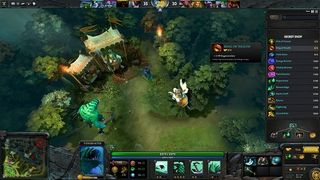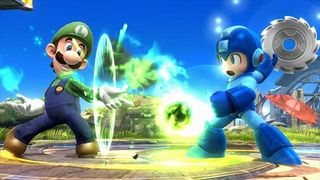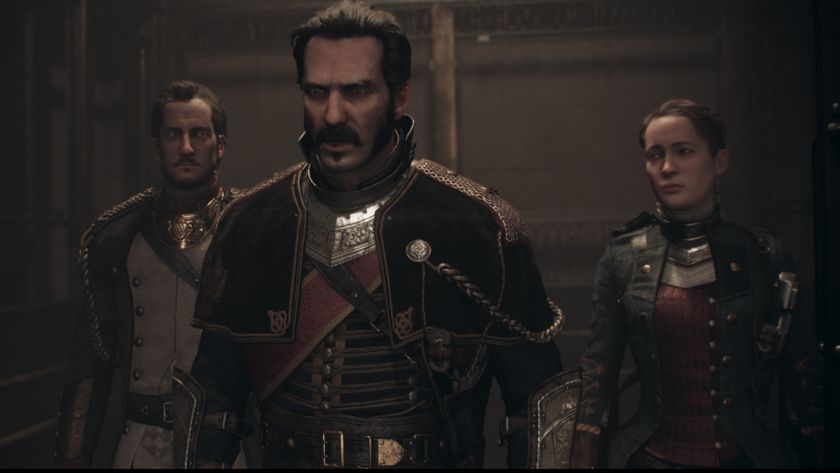eSports could be the NFL if it would just stay still
eSports may be popular, but it's got a long way to go before it comes close to eclipsing the popularity and ubiquitousness of traditional sports. Do you know what the most-watched television program in North American history is? It's the NBC broadcast of Super Bowl XLIX that aired on February 1st, 2015, which was watched by 114.4 million US viewers. That's over a third of the country's population, all sitting down to watch the North American sporting event of the year. Nearly half of all Americans consider themselves pro football fans, even though they may not necessarily catch every single game on TV. eSports has the potential to hit these kinds of numbers, but it's currently fighting an uphill battle with the general sports-watching populace.
Despite what certain blowhards would have you believe, eSports is here to stay. But what can eSports do to entice more casual players - and by extension, viewers? How can they appeal to the masses, who want to see what these games are all about but aren't able to devote the hundreds of hours just to get to a point where they're remotely competitive? How can it pull in the people who wouldn't mind watching some exciting competition filled with swords and spells and spectacular showdowns, or throw the metaphorical football around a Dota match on a lazy Sunday? I have a theory, and it's one that might not be easy to stomach for the companies designing these eSports platforms: these games need to stop changing so damn frequently.

It's an interesting conundrum. Developers need to keep two revenue streams going: one to earn money from the people playing the game, and other to get people to watch other people play it. It's common belief that competitive video games (eSports games in particular) need to be constantly updated to stay interesting and to stay fair. Exploits are fixed to keep the playing field level, but characters can also be modified to force players to change strategies, and additional gameplay wrinkles like new items and objectives can be added to spice things up within the community.
It sounds like a great idea - nothing like waking up one day to find the game you've spent hundreds of hours playing suddenly has a whole new set of rules to learn and concepts to conquer. But this is precisely what is keeping eSports from truly entering the collective consciousness like other, more physical, more static sports. Public opinion already considers games like League of Legends and Dota 2 to be virtually impenetrable to all but the most dedicated players, and these games are in a constant state of flux. Changes in Dota 2 can range from more granular tweaks on ability and item strength and timing, to flat out changing the landscape of the match, moving tower locations and adding additional game-changing runes to the mix.
These changes can come fast and frequent, with balancing patches and other tweaks often hitting once a week (and sometimes even more frequent than that). Throw in the steady feed of new guns, maps, and modes from season passes for games like Call of Duty or the new characters to buy in Heroes of the Storm and it's easy to see how much a single game can transform into a whole new beast even a few months after release. eSports players rarely have an opportunity to explore the long-term ramifications of how these changes affect play, because there's a good chance that the next patch will completely undo the last one. It's one thing to play these games on a daily basis and understand how these changes can affect their flow, but it's another thing entirely to be casually invested in the game and not understanding why what you're playing or watching seems completely different from what it was three months ago.
And that's to say nothing of the yearly releases of games like Call of Duty, which each seem to have their own presence within the eSports scene, each one playing just similar enough to each other to be familiar and just dissimilar enough to have their finer points obscured by the differences. It's like watching American Football one year, then getting Canadian Football the next - sure, it looks the same, but all of its nuances add up to make it a bizarre new experience that comes with its own learning curve.

It's not that professional sports don't change - they just change at a glacial pace in comparison to eSports. The NFL makes most of its changes on a yearly basis (as opposed to the weekly patch notes that games like Dota 2 see), usually introducing a half-dozen or so additions to the rulebook that are voted on by a committee to either improve on player safety or clarify previous rules. Huge changes, like the proposed adjustment to the NFL's extra point rule will have several different versions of the rule drafted and then voted on by the team's owners. Hell, the NBA's three-point line was first tested in by the NCAA in 1945, but not widely adopted by professional leagues until 1961 - nearly 20 years later. And it completely changed basketball's flow, adding a whole new layer of strategy for its players to learn and for viewers to adapt to.
Sign up to the 12DOVE Newsletter
Weekly digests, tales from the communities you love, and more
Video games are in a unique position - it's incredibly easy to make incremental rule changes and push them out to a large population of players to test, and then tweak a few numbers to fix any imbalances. The problem is the allure to constantly add and fix and experiment is always hovering over any game that has a persistent online presence. So how do you split the difference? You create a "tournament legal" baseline that persists for a given season.
Imagine, if you will, a separate mode in games like Dota 2 made with the sole purpose of keeping a stable playing field from tournament to tournament, culminating in the yearly Invitational at the end of the 'season'. This mode would stay static between tournaments, with rule changes agreed upon by a committee of players and developers, suggested by changes made in the 'experimental' mode that receives far more frequent updates. This area would be a testing ground of sorts, where developers can make their sweeping changes and add new content before applying them to the more universally agreed upon tournament play. Doing this would keep play consistent from month to month, and allow for strategies to develop and evolve off of the current subset of rules.

And it's something all eSports titles could benefit from, whether it's Street Fighter or Call of Duty. A whole world of tactics have blossomed out of Super Smash Bros. precisely because it hasn't changed as often as other fighting games. Yes, certain characters come out on top at first, but then players continue to find ways to counteract them, and huge upsets continue to be discovered, even years after release.
If eSports wants to appeal to a larger audience, it needs to be more judicious with how it parses out updates and additional content. Sure, it might make a few bucks in the short term by selling a new suite of content every month, but ensuring the lasting popularity of eSports is a long game that is being sacrificed in the name of short-term profits and balancing adjustments. Let the rules have time to breathe so everyone can have a chance to catch up - even the normal people watching from home.
Most Popular







